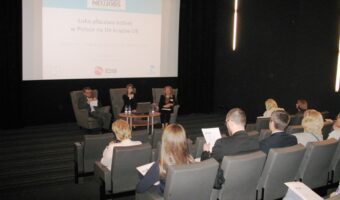The issues of wage differentials between men and woman in Poland in relation to the state of affairs in the European Union countries were the main topic of the seminar which took place on 25th June 2014 in Warsaw. After the seminar was opened by Monika Ksieniewicz from the Office of the Plenipotentiary for Equal Treatment in the Chancellery of the Prime Minister, Iga Magda presented the main results of research on the wage gap between women and men, conducted by IBS as part of an international research project NEUJOBS (www.neujobs.eu). The study covered issues such as the amount of the wage gap in Poland compared to other European Union countries, taking into account women and men in different age groups and at different levels of remuneration (low and high paid).
Attention was drawn to the impact that the level of remuneration has on the wage gap – a noticeable trend in the European Union is an increase of the wage gap for high salaries. The highest differences in this respect were recorded in Germany, the smallest – in the Czech Republic. In Central and Eastern Europe a higher wage gap is characteristic mainly of workers entering the labour market, wherein the wage gap in Poland is generally higher than in most EU countries.
Then Piotr Lewandowski (IBS) discussed the issues of flexible forms of employment and their impact on the wage gap between men and women. In Central and Eastern Europe wage gap for the temporarily employed is 15% higher than in other EU countries.
We invite you to acquaint yourself with the presentations available below as well as the IBS paper “Does flexible employment pay? European evidence on the wage perspectives of female workers” written by Iga Magda and Monika Potoczna.
Full report is available here


